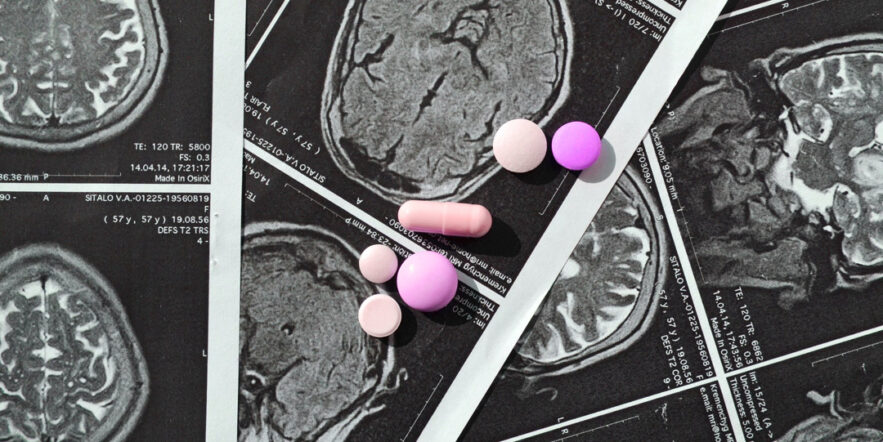The supplements you take to improve your brain health may contain drugs that haven’t been approved for use in the United States, according to new research. The study, published last Wednesday in the journal Neurology: Clinical Practice, found five unapproved drugs in the supplements examined by researchers, says Dr. Pieter Cohen, an associate professor of medicine at Harvard Medical School and the lead author of the study. Drugs that have not been approved for use by the FDA are not allowed to be sold in the US.
And often those unauthorized drugs are in plain sight on the supplement label. “I was struck by the unapproved drugs being listed on the labels, and often there were multiple unapproved drugs in the products,” Cohen says. Some of the drugs, which are approved for use outside the United States, were at doses higher than what would normally be prescribed, or were combined with other drugs, which could lead to potentially dangerous drug interactions, Cohen says.
The researchers examined eight unnamed supplements that were purchased online and claimed to improve mental functioning. America’s aging population spends more than a half-billion each year on these so-called brain-boosting supplements, which are touted as a way to improve memory and cognition, says Cohen. .
Researchers looked for the drugs omberacetam, aniracetam, phenylpiracetam, and oxiracetam, all of which are analogs (substantially similar) of piracetam. Piracetam is used in some countries to treat dementia, cognitive impairment and other disorders. But a Cochrane review found there was limited evidence of their efficacy, and said more study was needed. The only drug in its class approved for use in the United States by the Food and Drug Administration is levetiracetam, which is an anti-epileptic.
The drugs found in the products “weren’t necessarily the same (drugs) as what was listed on the label,” Cohen says. For example, Cohen and his team found omberacetam and aniracetam in the brain-boosting products they tested. The two other drugs, phenylpiracetam and oxiracetam, were listed on some of the labels but not found in the supplements themselves.Three other unapproved drugs–phenibut, vinpocetine and picamilon – were found in some of the products.
“The health effects of consuming untested combinations of unapproved drugs at unpredictable dosages without clinician oversight in supplements are unknown,” the researchers wrote.Some of the drugs were in dosages fourfold greater than would normally be prescribed.
Cohen says he is not aware of any study that has looked at the side effects that might result from taking these drugs in combination. “We have absolutely no idea what the effects might be on the human body.”
What Brain-Boosting Supplements Are and What They Can Do:
- Omberacetam (also known as Noopept), which was present in all of the products examined by the researchers, is used in Russia to treat traumatic brain injury, mood disorder and other conditions, the researchers wrote.
- Aniracetam is used to treat dementia in such countries as China, Italy and Argentina. Vinpocetine is used to treat stroke and cognitive impairment in Russia, China and Germany.
- Phenibut is used in Russia to treat conditions such as anxiety, insomnia and alcohol withdrawal. It can be addictive and a person might suffer withdrawal symptoms if they stop taking it, Cohen says. It also can be abused and people can overdose on it.
- Picamilon is used in Russia to treat cerebrovascular ischemia, mood disorders and other conditions.
- Vinpocetine, made from a compound in the periwinkle plant, can harm pregnant women or their fetuses, according to the Memorial Sloan Kettering Cancer Center. It also can decrease white blood cell counts, increase the effects of blood-thinning medications, and enhance the effects of medication designed to lower high blood pressure (making it a stronger dose than prescribed).
The researchers wrote: “The risks of using specific products are not known although these drugs have been associated with adverse effects including increased and decreased blood pressure, insomnia, agitation, dependence, sedation, hospitalization, and intubation.”
The researchers did not name the supplements they examined, but Cohen says, “it’s just a sample of what’s out there.” Cohen says if his patients ask him about brain-boosting supplements, he tells them to steer clear. “If the category contains drugs, that worries me. It’s impossible for a consumer to know whether an active pharmaceutical drug is in a brain-boosting product or not.”
Michael White, head of the Department of Pharmacy at the University of Connecticut, who wrote an article this year warning of the dangers that supplements can pose for the Annals of Pharmacotherapy, says, “It is very discouraging to see that dietary supplements are still being adulterated with synthetic chemicals and undisclosed prescription drugs.The hidden inclusion of synthetic chemicals and drugs used in Russia in dietary supplements is risky on many levels. Not only is there insufficient safety or effectiveness data to have it be FDA approved, it is impossible to predict drug interactions with the prescription or over-the-counter drugs the patients are taking because it is not disclosed.”
Alternatives and Safety
In general, if his patients ask about supplements, Cohen suggests they try vitamins or an individual botanical as a safer alternative to those that contain a combination of products.Some people look to gingko biloba or Omega-3 fatty acids to improve memory and cognitive function, but that has not been supported by high-quality studies or randomized trials, Cohen says.
“I’m not convinced any evidence I’ve seen” shows that any supplements can prevent dementia, he says.If someone still wants to take a supplement, Cohen recommends those “certified by a high-quality lab,” such as USP or NSF International. While the laboratories don’t verify the claimed health benefits of the supplements, they do verify that the products meet quality standards and are accurately labeled.
White also recommends products certified by ConsumerLabs, or that are sold at stores such as CVS or GNC, which require third-party testing of their products to ensure safety.
White says, “the FDA cannot adequately protect you from dangerous dietary supplements. They have neither the authority nor the funding to oversee this market effectively, leaving millions of consumers potentially at risk.”






